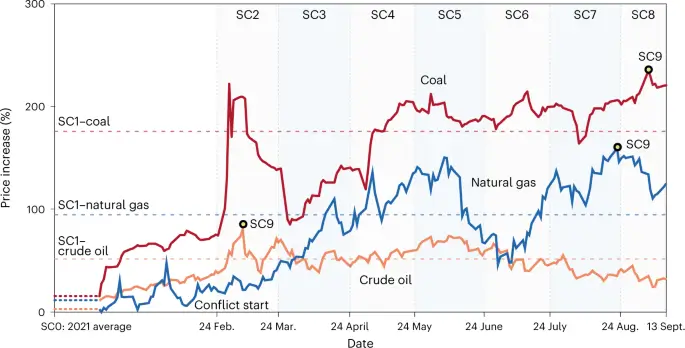Global Oil Buyers are Buying Local amid the Red Sea Crisis

6th February 2024
Red Sea crisis shift global oil buyer to buying Local
Regionalization is taking place in the once-bustling global oil market, owing to a combination of factors including growing Red Sea instability, rising freight costs, and strategic concerns. This movement is changing trade patterns and modifying the landscape of oil business, driven by recent militant attacks and economic concerns.
Chaos at the Crossroads
The Red Sea, a critical artery for maritime oil transport, has become a hotbed of piracy and militant activity. These incidents, coupled with geopolitical tensions, have escalated shipping risks and pushed insurance premiums upwards. Consequently, the allure of geographically closer sources of oil is becoming increasingly irresistible for buyers seeking to mitigate these uncertainties and manage costs.
Emerging Regional Blocs
This dynamic is leading to the emergence of distinct, localized trading regions. One region centers around the Atlantic Basin, encompassing the North Sea and the Mediterranean. The other encompasses the Persian Gulf, the Indian Ocean, and East Asia. While some oil trade still persists between these regions via the longer and pricier route around the tip of Africa, recent buying patterns indicate a growing disconnect.
Also Read: Indian Refiners Return to Iraq as Russia Loses Grip on Top Supplier Spot
Europe Seeks New Shores
The impact is evident in Europe, where refineries are diversifying their crude sources to minimize exposure to Red Sea risks and high freight costs. Refineries skipped purchases of Iraqi Basrah crude last month, opting instead for North Sea and Guyana crudes. This shift reflects a broader trend of European buyers turning inwards, focusing on regional supplies.
Transatlantic Leap
The trend extends beyond Europe. Kpler data reveals a surge in crude loadings from the US to Asia. This transatlantic journey, once considered economically unviable, is gaining traction as the price differential between US and Brent crude narrows, making long-distance shipments more attractive.
Canal Traffic Dries Up
The Suez Canal, once a symbol of interconnectedness, is witnessing a decline in transit volumes. Kpler reports a 23% decrease in oil tanker transits last month, further evidence of the shift towards regionalized trade. Similar drops are observed in liquefied petroleum gas and liquefied natural gas transits, highlighting the broader impact on energy flows.
Disrupted Flows, Rippling Effects
The reshaping of trade routes is disrupting traditional trade flows. Diesel and jet fuel shipments from India and the Middle East to Europe, along with European fuel oil and naphtha exports to Asia, have been significantly impacted. This disruption is reflected in regional price fluctuations, with Asian naphtha prices hitting a two-year high due to concerns about sourcing the product from Europe.
Costly Consequences
The Red Sea’s volatility is pushing up global oil transport costs. Kpler estimates that Suezmax crude tanker rates from the Middle East to Northwest Europe have jumped by nearly 50% since mid-December. This translates to an additional $2 per barrel for transporting oil from Asia to Europe, further incentivizing regional sourcing.

Geopolitical Headaches
Adi Imsirovic, director of consultancy Surrey Clean Energy, said “Geopolitics are not good for trade.” The uncertainties and risks associated with Red Sea instability are forcing a recalibration of the global oil market, with regionalization emerging as a key coping mechanism.
Conclusion
The Red Sea’s turmoil is acting as a catalyst, accelerating a pre-existing trend towards regionalization in the oil market. This shift, driven by economic and security concerns, will likely have long-term implications for trade patterns, energy security, and geopolitical dynamics. As the world adapts to this evolving landscape, one thing is certain is the days of a truly globalized oil market may be numbered.
Click here to join our Telegram chanel
You will get information, news, and support related to Merchant Navy.
